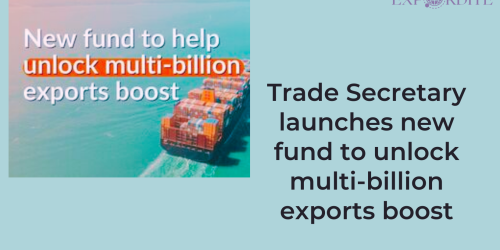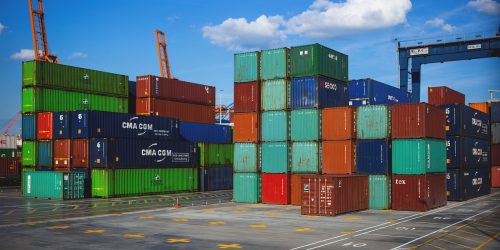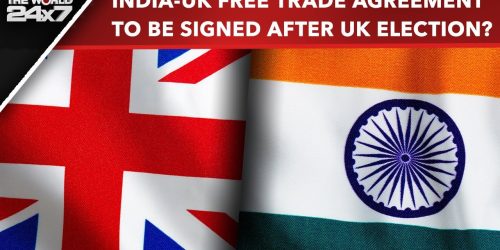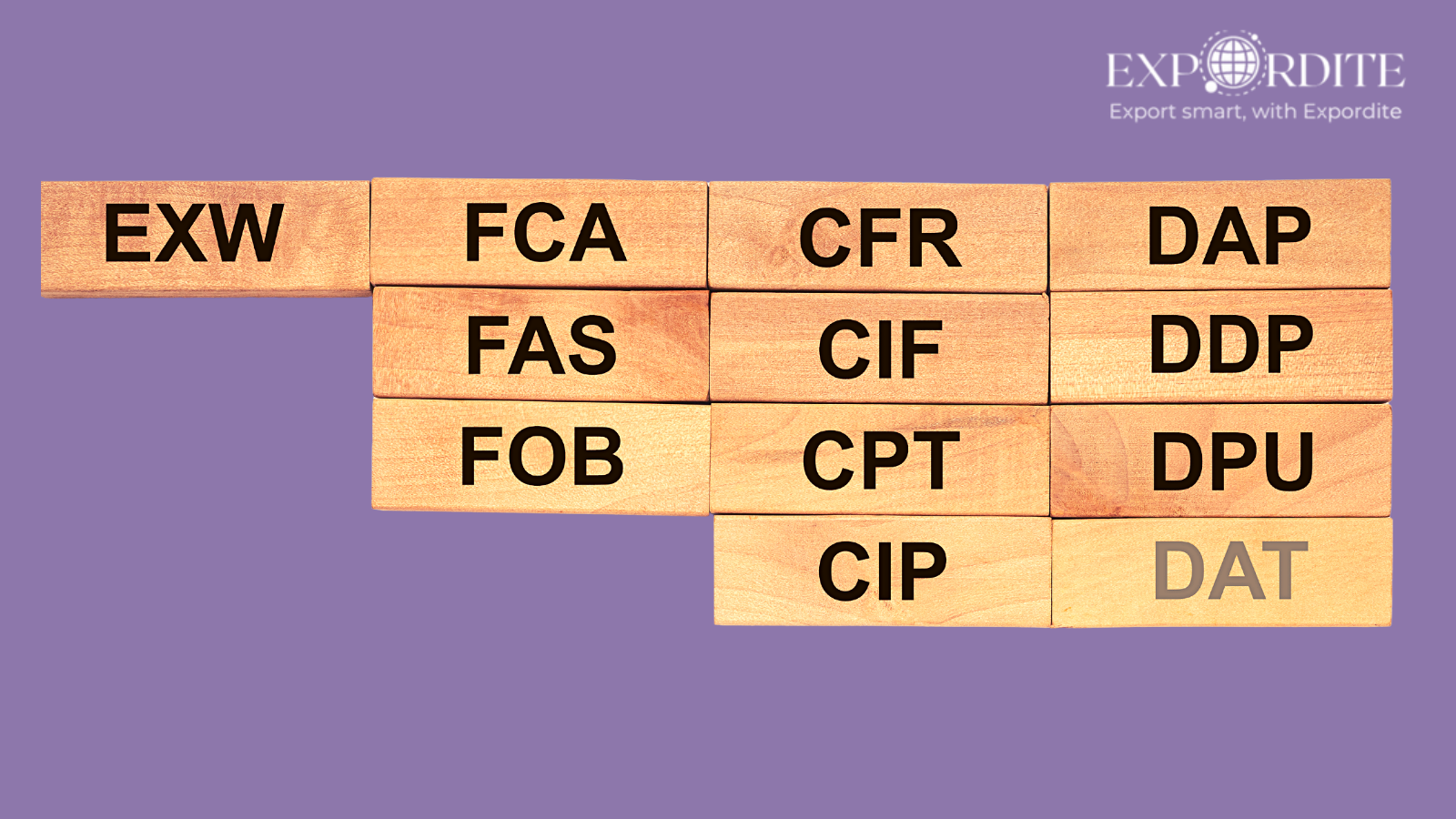10 UK Export News You Might’ve Missed – Week 4
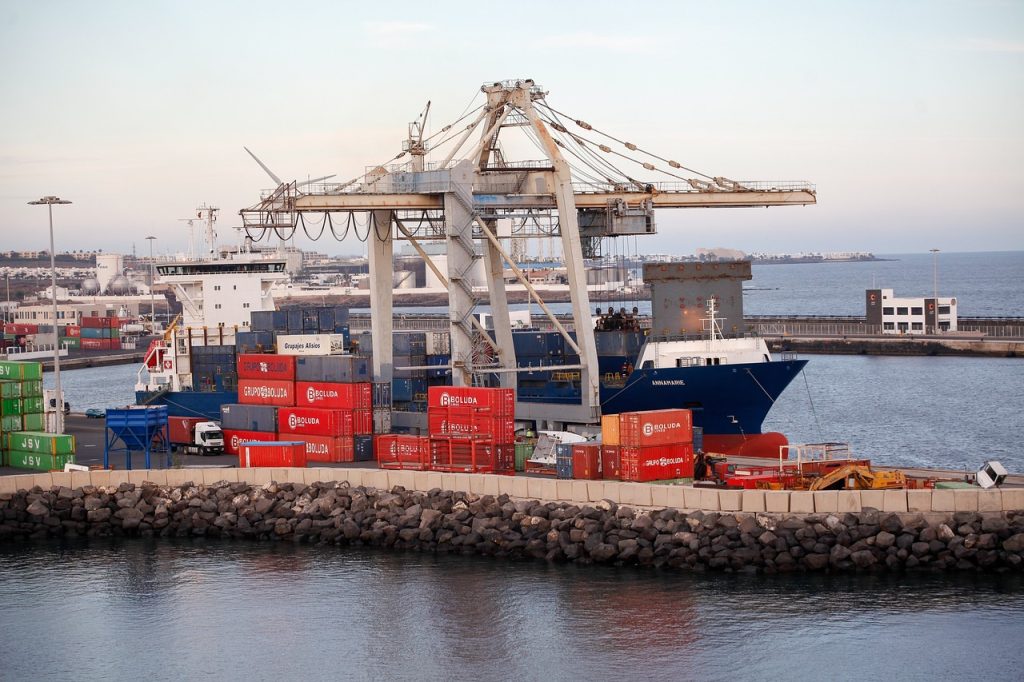
In this edition of Export News from Expordite, we’ll cover the top 10 UK export news and headlines from week 4 of 2024 – January 22nd-28th, 2024
Key News:
-
Government pledges £500,000 to boost British services exports
-
UK government introduces new digital labelling for imports and expands CE mark extension
Export News:
1. UK pulls out of post-Brexit trade talks with Canada
“Nearly eight years after Brexit campaigners persuaded a slim majority to vote to leave the European Union, on a platform that included promises of a brighter future as a global trading nation, the UK government has walked away from talks to replace its legacy EU trade deal with Canada over disputes involving beef, cars and cheese.
The talks between the United Kingdom and Canada — which share a head of state (King Charles) and are both members of NATO and the Group of Seven forum of leading advanced economies — began in March 2022, two years after Britain officially left the EU. Goods and services have continued flowing between the two countries under the terms of the EU-Canada free trade deal.
But Britain had sought to negotiate a new trade deal with Canada that would improve upon the terms of the existing agreement. Parts of the current deal are also due to expire, or have already done so, with no new rules to replace them.
Meanwhile, rules governing the export of British cheese to Canada expired in December. Now, UK producers selling to Canada face paying tariffs of up to 245% of the value of their cheese.
According to the UK government, total trade in goods and services with Canada was worth nearly £26 billion ($33 billion) in the year to the end of June and Canada is the UK’s 13th-biggest export market.“
Source: CNN
2. UK-Canada trade rift: What it means for cheese, beef and cars
“Negotiations to thrash out a new agreement to replace the one the two countries had when the UK was still in the European Union had been running for nearly two years.
But on Thursday night, it emerged the UK had halted discussions, due to a lack of progress on the two food products.
It could mean tougher trading terms for the UK with a partner that accounted for 1.4% of its total trade in the 12 months to June 2023.“
Source: BBC News
3. Post-Brexit trade deals: what’s been agreed and what could still come?
“Negotiations over a trade deal between the UK and Canada have been halted after disagreements on beef and cheese tariffs.
The ability for the UK to secure its own global free trade deals was sold as one major benefit from the UK’s decision to leave the EU but progress has been mixed. Here we look at what agreements have been struck so far and with whom, and which other important economies are still at the negotiating table and why.“
Source: The Guardian
4. SI entrepreneurs join UK Pacific Women Export Leadership workshop
“3 Solomon Islanders are participating in the United Kingdom Trade Partnerships (UKTP) Pacific Women Export Leadership workshop in Apia, Samoa this week. They are Cathliro’s Diana Yates, Solomon Indulgence’s Ruby Lee and Solomon Islands Women in Business Association Wisdom Enterprises’ Rachel Rahii.
The workshop supports dynamic women in senior leadership positions in private companies, particularly small and medium enterprises, that are exporting or aiming to export products internationally.
The 3-day workshop is a partnership between the International Trade Centre and the UK Foreign, Commonwealth & Development Office.“
Source: GOV.uk
5. UK and US sanction key Houthi figures to protect maritime security in the Red Sea
“The UK and US have imposed co-ordinated sanctions on the Houthis today to disrupt their ability to carry out attacks on international shipping in the Red Sea, and promote the peace, stability and security of Yemen.
Four key Houthi figures involved in the attacks will be subject to UK asset freezes, arms embargoes and travel bans.
This is the first sanctions action against the Houthis co-ordinated between the UK and US since the attacks in the Red Sea began in November. Pre-existing sanctions against 11 Houthi individuals and 2 entities remain in force. This includes Houthi Security Chief Sultan Zabin, who was sanctioned by the UN in February 2021, for heading a campaign of systematic arrest, detention, torture, sexual violence and rape against politically active women in Yemen.“
Source: GOV.uk
6. Government pledges £500,000 to boost British services exports
“More UK professionals will be able to provide their services around the world thanks to new government funding to help get UK qualifications recognised overseas.
Grants of up to £75,000 will be awarded to UK regulators and professional bodies as part of the Recognition Arrangements Grant programme. The fund can help them strike deals with counterparts around the world to help make it easier, quicker and cheaper for UK professionals to have their qualifications recognised overseas.
From engineers and architects to accountants and lawyers, the UK is world-renowned for its high-quality services companies. We are second biggest exporter of services in the world – behind only the US – and the UK’s services exports are currently at a record high.
However, qualifying as an architect, accountant or lawyer in the UK doesn’t generally qualify you to practise abroad which means UK companies miss out on opportunities internationally. The Government is therefore pledging £500,000 to help facilitate agreements which can reduce the need for professionals to gain additional qualifications in foreign countries or go through potentially costly and burdensome bureaucracy. “
Source: GOV.uk
7. Rules against exporting haggis to US a ‘scandal’, MP tells Commons
“Rules preventing the export of haggis to the United States are a “scandal”, the Commons has heard.
Haggis has been banned in the US since 1971 because it contains sheep lungs.
Speaking in the Commons, Mr Carmichael (Orkney and Shetland) said: “Is it not a scandal that the only way you can get the ‘great chieftain o’ the puddin-race’ exported into the United States is if you send the vegetarian version?“
Source: Shropshire Star
8. UK government introduces new digital labelling for imports and expands CE mark extension
“The UK government has announced it will introduce new legislation to allow for digital labelling of imports to reduce the regulatory burden on businesses.
Digital labelling will allow businesses to put all relevant regulatory or manufacturing information online, rather than having to print it on products, thus saving time and money.
The Department for Business and Trade (DBT) also confirmed it would extend the indefinite use of the EU’s CE mark to a further three product categories, having last summer announced it would extend its use within the UK indefinitely for the 18 categories under its remit.“
Source: The Institute of Export & International Trade
9. Banks Could Alleviate International Payment Concerns for UK SMEs Considering Exporting Overseas
“New Currencycloud research, which surveyed 500 decision makers at UK SMEs, found that 28 per cent of businesses that are not already exporting overseas have plans to do so in the future – but concerns regarding international payments are preventing them from taking immediate action.
Many businesses find starting to trade internationally daunting. Currencycloud explained that respondents cited everything from worries about finding overseas customers (31 per cent) to concerns about tariffs and other charges (29 per cent) when explaining why they hadn’t yet exported.
However, 34 per cent of businesses currently not exporting said that they choose not to do so due to worries about the complexity of making and receiving international payments. Of these businesses, 51 per cent are concerned about being exposed to currency fluctuations and foreign exchange risk.
Additionally, 49 per cent of businesses are concerned about payment security, with 45 per cent worried about the speed of payments. Another 43 per cent cited the cost of making and receiving payments as being a key barrier.
Of the 51 per cent of SMEs surveyed who are already exporting, 33 per cent still find international payments a challenge. However, dealing with tariffs (45 per cent) or customs and red tape (43 per cent) emerged as bigger issues for them. This finding suggests that businesses that are not yet exporting are underestimating the very real challenges that navigating customs and tariffs can bring.“
Source: The Fintech Times
10. ‘It’s impossible to plan’: UK importers braced for storm at ports amid new Brexit checks
“In April, many animal and plant products coming from mainland Europe will have to undergo physical checks at newly installed UK border posts. Importers of plants, meat and dairy products from mainland Europe are now readying themselves for the most significant change to how goods arrive in the UK since it left the single market three years ago.
This week the government will fire the starting gun on its new border policy. The catchily named border target operating model (BTOM) will look to mirror the controls the EU has for UK companies trying to export to mainland Europe.
From Wednesday, all imported plant and animal products will be categorised as low, medium or high risk. Those seen as medium and high, which includes meat and dairy products, as well as most plants, will now require checks from plant health inspectors or vets before they can be transported.
This comes before the more significant changes on 30 April, when these products will be physically checked at new border posts in the UK.“
Source: The Guardian
Want to get more international trade content straight to your inbox?

